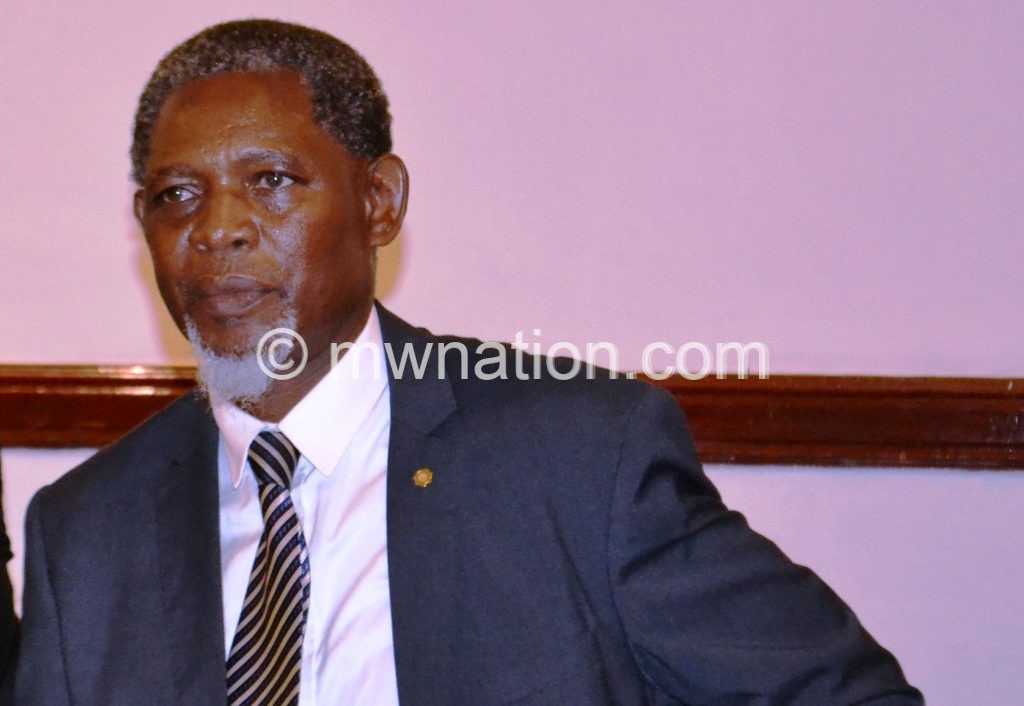Voting day shifted to September
Parliament has amended the Constitution to shift the voting day in general elections from the third week of May every five years to the third week of September.
The shift, to be effective from the 2025 general election, is one of the new developments to affect Malawian voters in parliamentary, presidential and local government polls following the passing of the Constitutional (Amendment) Bill No. 5 in Parliament on Tuesday.

The Bill was being considered in the House under the constitutional provision that the general elections be held on a Tuesday of the third week of May.
Considerations for the shift to the third week of September came about because dry and warm weather conditions would be more friendly to citizens, as opposed to May, whose challenges include rainfall, cold weather and logistical challenges such as rain-damaged roads.
As presented by Minister of Justice Titus Mvalo in Parliament on Tuesday, the Bill also sought to align the concurrent conduct of elections for presidential, parliamentary and local government elections (tripartite) following last year’s fresh presidential elections which created a one- year gap between the presidential and the other two elections.
The Bill sought to regularise the presidential elections case consequential orders set by the Supreme Court of Appeal on how elections should be held in the country.
This means the tenure of the current cohort of members of Parliament (MPs) has been extended by one year, as the tripartite elections will be held in 2025 instead of 2024.
The Bill also provides that the Judicial Service Commission will be nominating candidates for the Malawi Electoral Commission (MEC) chairperson who will be appointed by the President and the presidential election re-run will be held in the event that no candidate amasses outright 50 percent+one majority in an election.
Additionally, the Bill has also clarified the voting age dilemmas that existed by stating that all 18-year-old citizens may register to vote or those who will attain the age of 18 on the voting day may be eligible to register to vote.
Being a constitutional amendment, the Bill required a two thirds majority vote of MPs present and during the vote, 161 MPs voted for the Bill, one voted against while 25 were absent.
The Constitutional Court ruled during the presidential election nullification petition case that winners in general elections should amass 50 percent+1 votes.
Mvalo also presented amendments to parliamentary and local government elections so that members of Parliament and ward councillors get elected by a simple majority (first past the post)
He indicated that it would be expensive to hold several parliamentary and local government elections rerun when candidates fail to amass the majority of votes (50 percent+1).
The Bills entail that only presidential candidates should be elected with majority votes 50 percent+1.
Democratic Progressive Party (DPP) spokesperson on legal matters in Parliament Bright Msaka, while supporting the Bills, said MPs and ward councillors do not exercise executive powers, hence subjecting them to the majority vote was wrong.
In an interview, he said: “There was confusion on how the Malawi Electoral Commission interpreted the laws governing elections. In applying the court’s interpretation of the 50+1 majority for presidential elections, the Malawi Electoral Commission also applied that to members of Parliament.
“However, constitutionally and jurisprudentially, it is very uncommon to subject members of Parliament to the 50+1 majority votes. The philosophy that guides the election of the President and the philosophy that guides elections of members of Parliament and councillors is different.”
Msaka clarified that the President has the jurisdiction over the whole country, while MPs have a restricted jurisdiction to their own home area.
On the constitutional amendment, especially on the age of eligible voters, he argued that the issue needed to be decided by a referendum. But Mvalo argued that there was no need for a referendum, as the Supreme Court of Appeal interpreted clearly that Parliament just needed to make amendments.
On the amendments to the Acts of Parliament, Mvalo said the majority of MPs and ward councillors win with narrow margins, hence subjecting them to the 50+1 majority vote rule will lead to country-wide multiple election reruns which may be unsustainable economically.
Mvalo said: “Such developments will lead to elections being costly, hence we needed to make the amendments. The case was pertaining to the presidential election and by extending the 50+1 majority votes to members of Parliament, it would have been unintended by the court”.
He explained that had the court wanted the 50+1 majority votes to be extended to parliamentary and local government elections, it could have explicitly stated in black and white —that the majority vote is across all elections.
Leader of the House Richard Chimwendo Banda said it was pleasing that the laws have been aligned to do away with complications that may arise due to inconsistencies in the legal framework, adding that President Lazarus Chakwera may assent to the Bills to ensure that the coming parliamentary by-elections are not subjected to 50 percent +1 majority vote.
In total, on Tuesday Parliament passed eight Bills—three on elections and five loan Authorisation that seek to uplift lives of Malawians in rural set ups to spur economic growth in sectors such as agriculture, natural resources, management, development and tourism.





